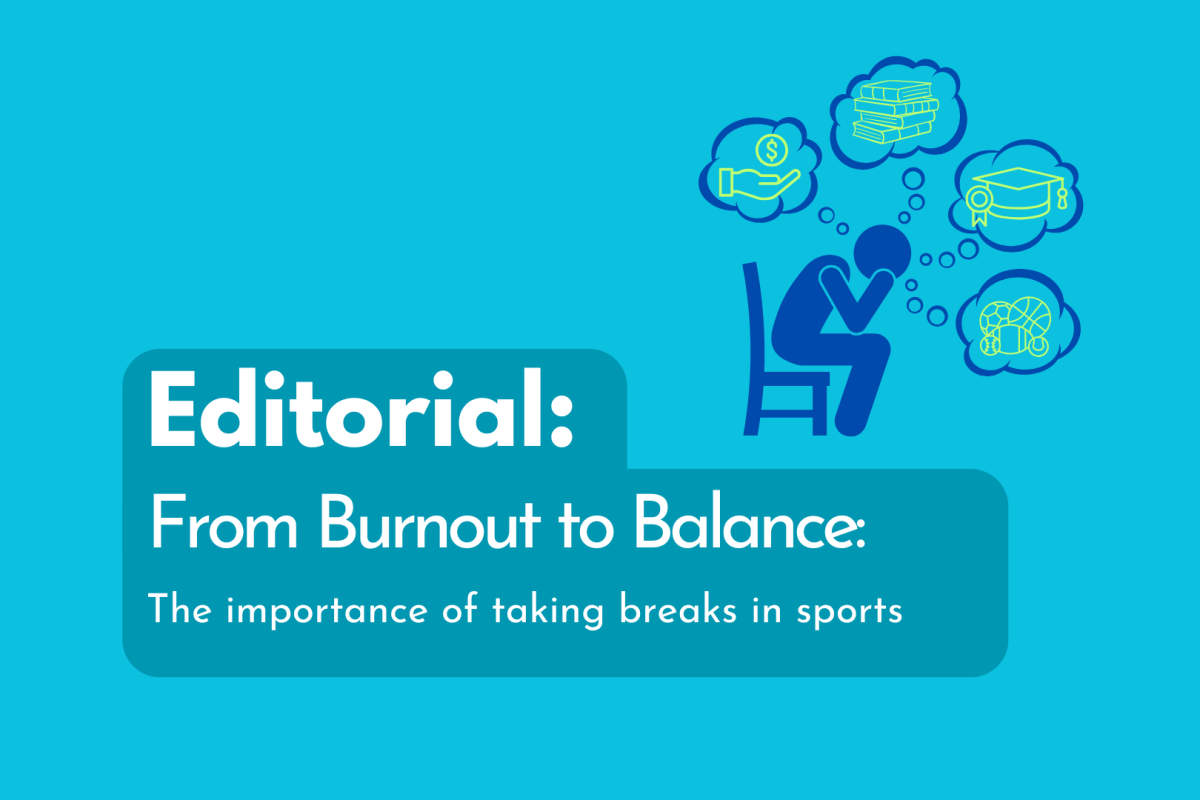As I reached across the Panera service counter, an employee handed me a large Charged Lemonade. “You know that has caffeine right,” he said. Yes, I am aware, but I had a paper due at 11:59 p.m. and it wasn’t going to write itself.
This happened on Nov. 19, the day before my fateful confirmation email from the Yearbook Club, informing me that I won the yearbook superlative for “Biggest Caffeine Addict.” While initially, it seemed like a harmless joke, it forced me to confront the reality of caffeine culture for students.
As high school students, our lives are often a whirlwind of academic challenges, extracurricular activities and social engagements. In the midst of this chaos, a silent but powerful companion often lurks in our backpacks and lunch bags – caffeine. While that morning cup of coffee or energy drink may seem like a necessary boost, school nurse Erika Almquist believes it is crucial to understand the chemistry behind caffeine addiction.
“Caffeine gives people an energized feeling but is not actually giving you energy,” Almquist said. “It works by blocking chemicals in your brain that naturally tell you to rest, and it also increases levels of the stress hormones that are responsible for the fight and flight response.”
For many, caffeine is a crutch, a necessary evil to combat the early morning grogginess and the midday slump. What starts as a casual cup of coffee in the morning can quickly spiral into a full-blown addiction, as it did for me. The rush of energy and focus caffeine provides is undeniable, but the toll it takes on our health and well-being is often overlooked. Senior John Feeney believes it is essential to be mindful of how one’s caffeine habits may contribute to their well-being.
“Caffeine isn’t totally evil depending on where you get it from,” Feeney said. “I feel like if you’re one of those people who drinks coffee every day, I’m not going to lie, I wouldn’t be too worried about it. It’s less about the caffeine and more about where you get it from.”
According to a Harbinger survey of 132 students conducted through Google Forms from Jan. 3 to Jan. 7, 21% of students consume caffeine every day, and of those, 38% of daily caffeine-consumers consume more than one drink per day. For many students, such as senior Colleen Donohoe, who also won the yearbook superlative for “Biggest Caffeine Addict,” getting hooked on caffeine was unintentional.
“Honestly, it was just a buildup over time, but it started freshman year with energy drinks,” Donohoe said. “And then it was like I know I had a coffee, but I kind of want a Monster [energy drink]. I didn’t think of it as caffeine, it was just having another drink. And then it was an addiction.”
Excessive caffeine consumption can contribute to a host of other health issues, and even in rare cases, death. As reported by the New York Times, Panera Bread’s Charged Lemonade has been linked to two wrongful-death lawsuits since October.
According to the Food and Drug Administration, most individuals can safely consume up to 400 milligrams of caffeine daily, although 100 milligrams is the recommended level for healthy adults. However, according to Panera’s website, a regular Charged Lemonade typically has 260 milligrams of caffeine and a large size has 390 milligrams.
“Charged lemonade kind of falls under the synthetic category of monster energy,” Feeney said. “When you’re drinking coffee, you’re drinking bean juice. It’s not that complicated. When you’re drinking charged lemonade you don’t really know what’s in it, so just be a little more wary.”
Caffeine, a known stimulant, can heighten feelings of anxiety, a condition many high school students are no strangers to. Balancing academic pressures, extracurricular commitments and social lives is challenging enough without the added burden of jittery nerves.
According to the Harbinger survey, 17% of student respondents have consumed caffeine “more than half the days” and 12% have “nearly everyday” for academic or performance-related reasons, such as staying awake to study or complete assignments. Donohoe consumes caffeine regularly for academic purposes.
“It makes me more efficient,” Donohoe said. “I get my homework done faster or I can focus on a test more if I have caffeine.”
One of the most insidious effects of caffeine addiction is its impact on sleep patterns. Late-night study sessions fueled by energy drinks may feel like a productive endeavor, but the toll it takes on students’ ability to get a good night’s sleep can be detrimental. A lack of quality sleep not only affects focus during classes but also leaves individuals more susceptible to stress and anxiety.
“It’s a tricky circle, honestly, because why are people tired and not able to stay awake to do their assignments without caffeine,” Almquist said. “It’s often because they aren’t getting enough sleep. And that can be a mix of things as far as not enough sleep, it can be overscheduled, it can be just having so much work that you stay up late. Caffeine is that beginning, what keeps you up late to start with, and creates a cycle of needing caffeine to stay awake and then it’s keeping you up going forward.”
Beyond the classroom, caffeine addiction can have far-reaching consequences. The financial strain of frequent caffeine purchases is an often overlooked aspect, impacting personal finances and potentially adding another layer of stress.
“[Caffeine] has a really bad financial impact on me,” Donohoe said “I go to Dunkin a lot, specifically Dunkin. I probably spend about five dollars per day, which adds up. It really gets you.”
According to the National Library of Medicine, caffeine is far too often marketed to adolescents as fun and safe, pressuring them to start caffeine addiction early on in life. In the Harbinger survey, 21% of respondents “sometimes” and 9% “often” feel pressured by external factors like academic demands or social situations to consume caffeine regularly.
“I think there’s a lot of publicity out there, and there’s probably pressure just from social media and also maybe having something to do like go to a coffee shop,” Almquist said. “And if you think about cigarettes compared to vaping and the nicotine major increase in amount, I feel like it’s similar going from just coffee to these energy drinks. They majorly up the caffeine use so you don’t even know, and they taste good. You’re drinking it like it’s my caffeine drink of the day, but it’s triple the amount of a regular cup of coffee.”
As high school students, we’re already under immense pressure to excel both academically and socially. Adding caffeine addiction to the mix only exacerbates these pressures, leading to a vicious cycle of dependence and tolerance. We must break free from this cycle and prioritize our health and well-being above all else.
Slowly but surely this year, I began to wean myself off the excessive amounts of caffeine that had once dominated my daily routine. By gradually reducing my caffeine intake from two large charged lemonades a day to one coffee or less, I’ve reclaimed control over my health and happiness. Today, I can proudly say that I’ve come a long way in my battle against caffeine addiction. I’ve learned to prioritize my health and well-being above all else, because caffeine shouldn’t be the solution.











